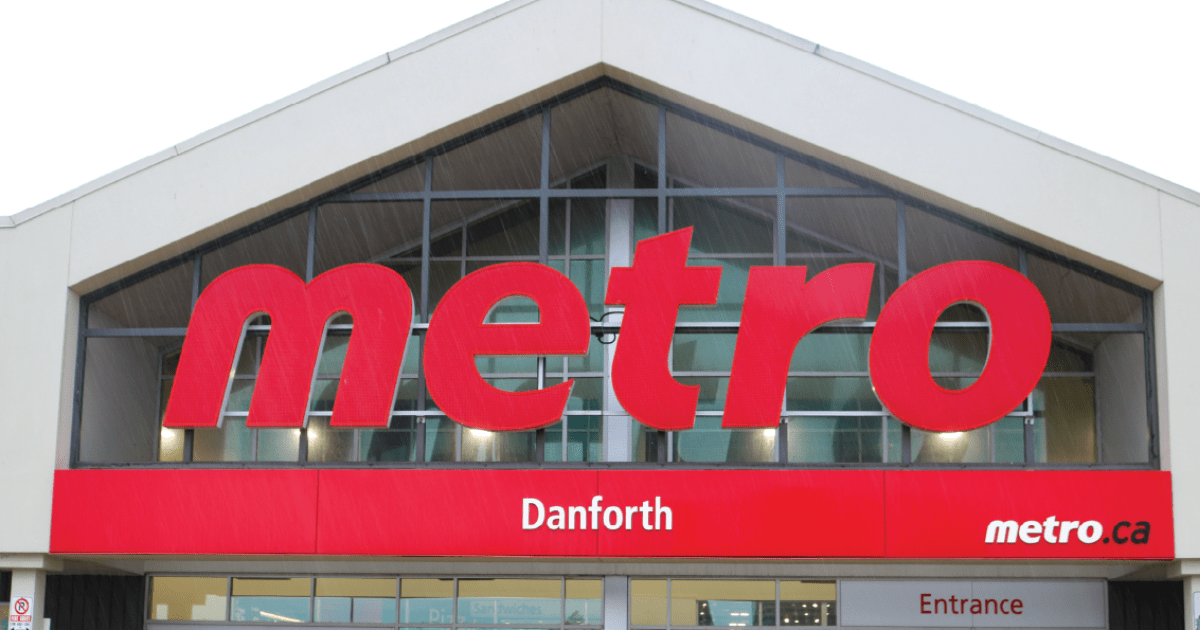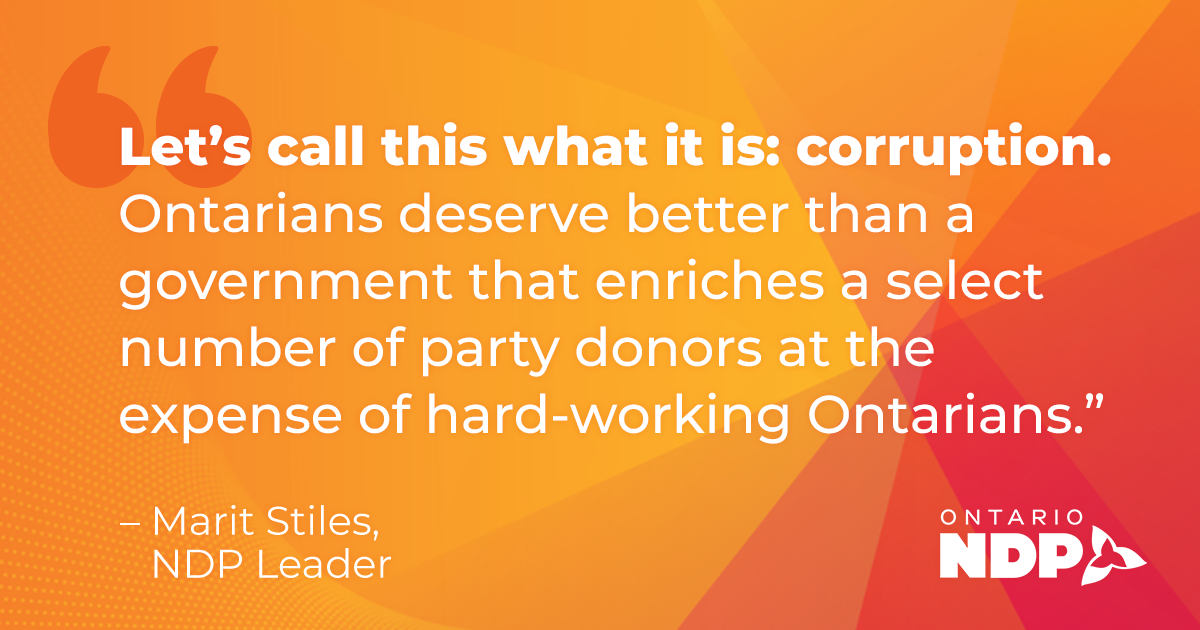I make memes that some people have called “shitty”. I used to post on TikTok, too. And I’m on reddit, for now. (all under the same username)
- 36 Posts
- 25 Comments

 2·10 months ago
2·10 months agoThat's a good idea. I think I'll cut out torstar because they paywall so many articles

 3·10 months ago
3·10 months agoNDP is actually pretty decent, especially compared to the leading brands :)
At least in the browser, adding an exclamation mark redirects you to the community. Without the exclamation mark my phone thinks its an email address.
Would love if you could add !ndp@lemmy.ca, and perhaps combine it with canadapolitics under a “politics” category?

 22·10 months ago
22·10 months agoThe firm is called municipal solutions: https://www.municipalsolutions.ca/our-team
The guy in charge of municipal solutions is John Mutton, who has been implicated in this scandal by the Toronto Star’s investigative journalism: https://www.thestar.com/news/investigations/who-is-mr-x-after-scathing-ethics-probe-raises-questionable-conduct-of-unnamed-greenbelt-consultant/article_d34f22b7-2a19-5e0f-b0fb-cc786bdb4b2f.html

Doesn’t seem like enough to me, although he’s had success with these small asks (he got the GST credit doubled a few times now)
This meme was based on a true story

 2·10 months ago
2·10 months agoMore than a million people do that every election, we just need a million more :)
I take credit for a few of those votes - I knock on doors to talk to folks about healthcare and the NDP every campaign!

 2·10 months ago
2·10 months agoMore solid labour journalism from The Breach, they and PressProgress are the few media outlets that have reporters assigned specifically to the labour beat.

 3·10 months ago
3·10 months agoGood work from the Ontario NDP on this one!

 2·10 months ago
2·10 months agoI was trying to respectfully disengage!

 2·10 months ago
2·10 months agoI still disagree with you but I don’t think either of us are going to convince each other. I appreciate you sharing your perspective, I wasn’t around back in the Usenet days and it’s cool to hear about it and how you were involved.

 3·10 months ago
3·10 months agoI disagree that users really have any say in the direction of the platform. Users aren’t clambering for ads or for crappy Amazon products, and so I don’t think it’s the competing interests of users that drive these changes. I see it as more of a conflict between users and owners.
- Platform begins with small user base
- Investors pour in capital to support and encourage the growth of the user base. At this stage the platform runs at a massive loss. This is when times are good for users.
- Investors, now with substantial influence, seek a return on investment by encouraging new anti-features on the platform.
Maybe this sounds like the same thing, but there are different solutions. If I understand you right, your solution to this problem is to restrict growth, which could allow for a more unified community that could push back against these changes. I would argue to change the incentives, change the governance model, so that the platform is publicly administered or administered by a non-profit or cooperative that is accountable to users, not shareholders. See how this very website (lemmy.ca) is being incorporated as a non-profit. It’s pretty neat!

 41·10 months ago
41·10 months agoI think we’re talking past each other. I’m talking about different problems with social media - not with the users, but the platforms themselves.
Here’s a few examples: Reddit cracking down on third-party apps, platforms requiring you to log in before viewing content, relentless tracking and privacy invasions, TikTok turning into a firehose of ads and sponsored content, and Amazon’s gradual transformation into a sketchy marketplace with systemically faked reviews and false advertising on products. These are less to do with the growth of the platform, and more to do with the pressure from management to extract money from users.
But yeah, I do get your point on how a relentless influx of new users can disrupt an existing community and create severe moderation challenges

 7·10 months ago
7·10 months agoThese platforms are getting worse because of monetization.
Corey Doctorow wrote a great piece on the “Enshittification” of TikTok that applies in general to social media platforms as a whole

 1·10 months ago
1·10 months ago…and the housing crisis we’re in started after we defunded public housing… I don’t know why you would advocate for that?

 10·10 months ago
10·10 months agoVacancy control is a policy that would fix this, and has been proposed by the Ontario NDP! It would tie rents to units instead of tenants, which would mean landlords can’t raise rents beyond the rent control guideline when putting a unit back on the market. This removes the incentive for landlords to renovict tenants.

 1·10 months ago
1·10 months agoBetting the farm on the public sector to solve the housing crisis is never going to work - and that’s the approach we’ve tried (and failed) to take.
Public housing projects have been systemically defunded since the 90s…

 8·10 months ago
8·10 months agoBetting the farm on the private-sector to solve the housing crisis is never going to work - and that’s the approach we’ve tried (and failed) to take
Here’s the bitter reality. The houses we’re building are large, detached, single family homes. Our municipalities are subsidizing sprawl by banning dense housing and waiving development charges on new suburbs - even though suburban homes are more expensive to serve with utilities, public transit, policing, and healthcare. That’s where the public money is going - not to more homes, but subsidizing suburban living. Provincial governments have been unanimously onboard with this scheme, and Ontario’s provincial government has just engaged in a nakedly corrupt scheme to enrich developers with over 8 billion dollars worth of Greenbelt land swaps. The federal government has defunded public housing projects for the past 30 years.
Simply saying “we don’t have enough builders” ignores the decades of policy failure, and is an easy way to throw in the towel. But the fact is, we can allocate our existing resources better.








Convention resolutions are binding on the party, not MPs. In this case the resolution binds the party to take this position publicly - although MPs could theoretically vote any way they wish! https://pharmacare.vote has details